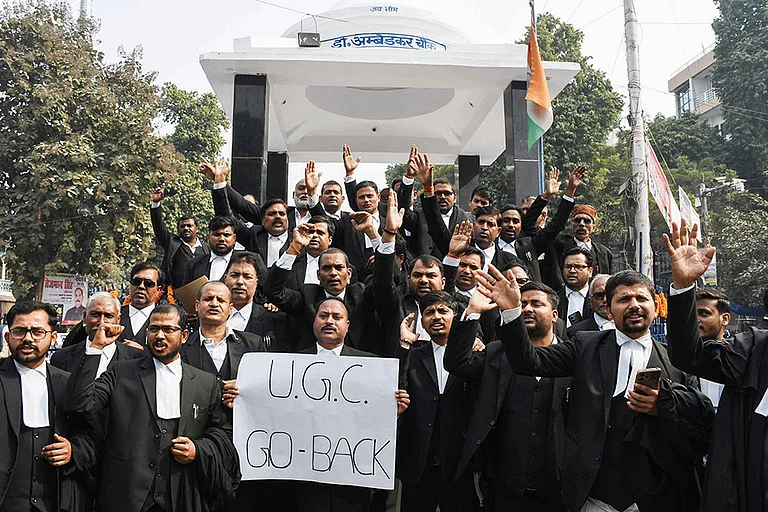The Yamuna crossed the warning mark of 204.5 metres in Delhi again on Wednesday with Haryana releasing more water from the Hathnikund barrage amid rains in the upper catchment areas, officials said.
The river had breached the danger mark of 205.33 metres on Friday following heavy rains in the upper catchment areas, prompting authorities to evacuate around 7,000 people from low-lying areas. The water level had receded below the warning mark on Monday and stood at 203.96 metres at 6 pm on Tuesday.
However, the water level rose again and crossed the warning mark around midnight. It stood at 204.89 metres at 7 am on Wednesday, the Delhi government's flood control room said. A forecast issued by the Central Water Commission said the river is likely to rise to 205.25 metres by 9 pm and remain stable thereafter.
The India Meteorological Department (IMD) has said widespread rainfall "with isolated heavy falls" is very likely over Himachal Pradesh and Uttarakhand over the next two-three days. The catchment of the Yamuna river system covers parts of Uttar Pradesh, Uttarakhand, Himachal Pradesh, Haryana, Rajasthan, Madhya Pradesh and Delhi.
Last week, Delhi Chief Minister Arvind Kejriwal appealed to people to avoid going towards the banks of the river. A flood alert is declared in Delhi when the discharge rate from the Hathnikund barrage in Haryana's Yamuna Nagar crosses the one lakh-cusecs mark and people living near the floodplains and in flood-prone areas are evacuated.
The Yamuna floodplains and low-lying areas in Delhi near the river are considered vulnerable to flooding. They are home to around 37,000 people. The overflowing Yamuna had affected low-lying areas near the river in northeast, east and southeast Delhi last week and around 7,000 people were shifted to higher ground.
The Delhi flood control room reported a discharge rate of around 14,000 cusecs from the Hathnikund Barrage in Haryana's Yamuna Nagar at 6 am on Wednesday. It was 19,745 cusecs at 7 pm on Tuesday. The discharge rate was 2.21 lakh cusecs at 3 pm on Thursday, the highest so far this year.
One cusec is equivalent to 28.32 litres per second. Normally, the flow rate at the Hathnikund barrage is 352 cusecs, but the discharge increases after heavy rainfall in the catchment areas. The water discharged from the barrage normally takes two to three days to reach the national capital.
Last year, the Yamuna river breached the danger mark on July 30 and the water level at the Old Railway Bridge rose to 205.59 metres. In 2019, the flow rate peaked at 8.28 lakh cusecs on August 18-19, and the water level of the Yamuna touched 206.60 metres. In 1978, the river swelled to a record level of 207.49 metres. In 2013, it had risen to 207.32 metres.
(With PTI inputs)


























